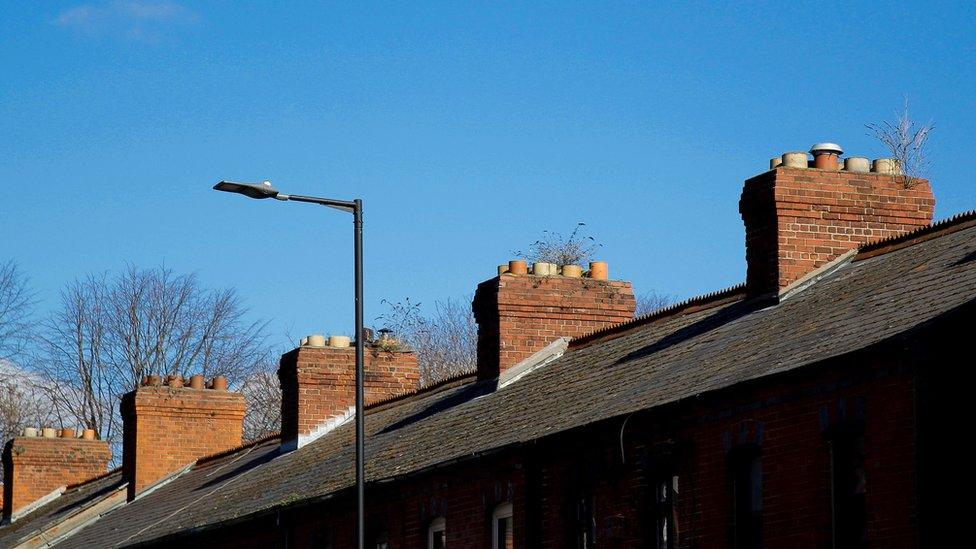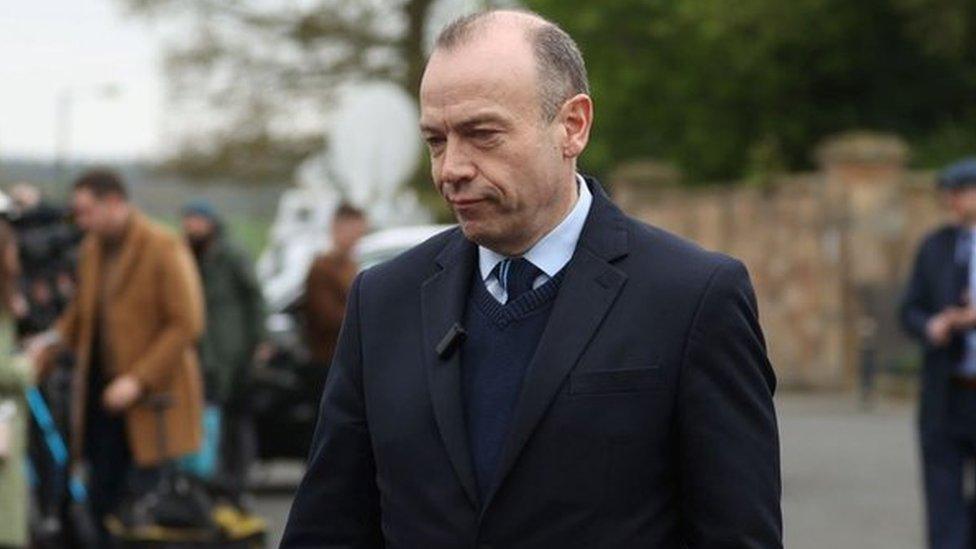Stormont Budget: Housing and benefits department faces huge cuts
- Published

The Department for Communities is facing an almost 16% cut in day-to-day spending due to budget cuts
The department in charge of housing and benefits is facing an almost 16% cut in day-to-day spending following the Stormont budget.
The Department for Communities (DfC) was given £111m, or 15.5%, less in day-to-day spending than what it asked for.
Reducing social home targets and significant cuts to employment support are among plans for reducing overspend.
The DfC is the largest department in the Northern Ireland Civil Service with over 9,000 staff.
It is responsible for a wide range of things like benefits, housing, addressing homelessness, arts and culture and sport.
Last month, the Northern Ireland Secretary allocated £861.1m to the department in the absence of an Executive.
Areas such as social security delivery and discretionary support grants are also facing cuts.
This would affect moving people on legacy benefits to universal credit, those in need of short-term support with living expenses and the economically inactive who are not in work but may need help finding a suitable job.
A decision has yet to be taken on the exact cuts, but it is understood this year's allocation will fall far short of the £40m of discretionary support grants handed out last year.
There was significant demand because of the cost of living crisis putting more pressure on many households food and energy bills.
The DfC has over 600 vacancies that it no longer has the budget to fill, of which 75% are front line staff meaning there is a risk of slowing down benefits delivery.

Only 1,400 of the 2,000 social houses planned will be built this year
There could also be funding implications for arms length bodies and funded third party organisations like the Arts Council, Libraries NI, Northern Ireland Housing Executive and others.
In terms of the capital budget, the DfC is facing a £59m shortfall, or 27%, compared to what was asked for, against a backdrop of record inflation in areas like construction.
This will mean the budget will not be able to meet the department's target to start 2,000 new social homes this year and is now only expected to achieve 1,400 new starts.
The challenge is compounded by the fact the department said its resource budget has been cut by 30.9% over the last decade.
Seamus Leheny, chief executive of the Northern Ireland Federation of Housing Associations, said the body was acutely aware of the growing housing waiting list.
"If we are serious about tackling the waiting list more needs to be done to help housing associations build homes right across Northern Ireland," he said.
"Cuts in the budget for the social housing development programme will be a retrograde step and will not help the many families who are waiting on a home."
An Equality Impact Assessment (EQUIA) consultation will be launched on Wednesday and run for four weeks.
Related topics
- Published9 May 2023

- Published2 May 2023

- Published27 April 2023
